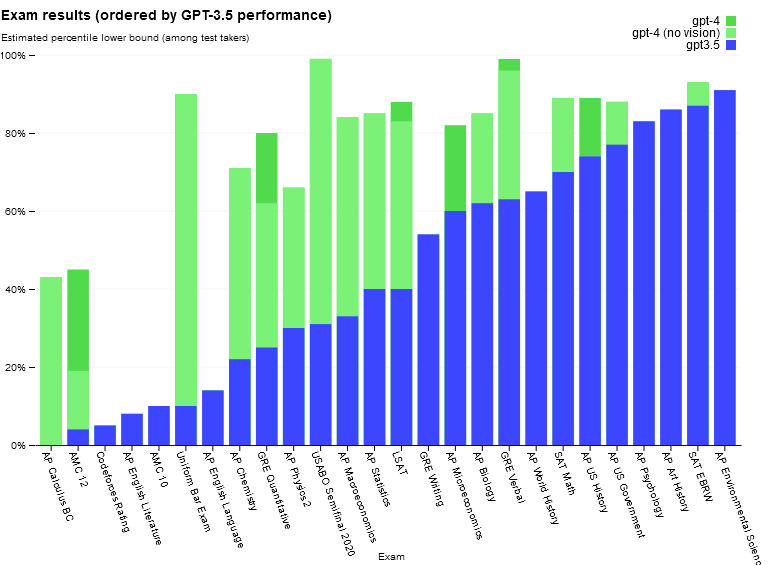
Maritime Investor Goals
The essentials of creating training material for a machine that searches by relevance based on modelled knowledge structures
The purpose of this article, Maritime Investor Goals, is to discuss the essentials of creating training material for a machine that searches by relevance based on modelled knowledge structures. The article consists of two parts:
Part 1: The essentials of creating training material for a machine that searches by relevance based on modelled knowledge structures. This sections emphasizes why it is necessary to create training material that differs from pattern recognition in which generative AI excels. And the section will end by describing what the enterprise search essentials for maritime investor goals are.
Part 2: The insuperable adeptness of human learning and the associative power of generative AI.
The essentials of creating training material for a machine that searches by relevance
Part 1 not only presents the essentials of creating training material for a machine that searches by relevance. The essence is that the training a machine by relevance relies on modelled knowledge structures. Furthermore, the emphasis is on why it is necessary to create training material that differs from pattern recognition in which generative AI excels. Finally the section will end by describing what the enterprise search essentials for maritime investor goals are.
Generative AI and Chat GPT
Two months ago, we wrote a newsletter about maritime investor questions around the hype surrounding generative AI and ChatGPT. And we referred to an expert analysis by Stephen Wolfram where he says, “The first thing to explain is that what ChatGPT is always fundamentally trying to do is to produce a “reasonable continuation” of whatever text it’s got so far, where by “reasonable” we mean “what one might expect someone to write after seeing what people have written on billions of webpages, etc.”
Today we start with a summary that derives from a user’s experience:
Generative AI makes relevance correlations between text increments found in its training material. When we enter a query in generative AI, the query is matched to phrases closest to the query. Also the system asks us if it is on track with its retrieval so as to overcome the potential ambiguity of our query in natural language. There is a relevance scoring for the returned phrase with other phrases in the system’s training material based on the text it has been exposed to. This is also affected by a conversational model where conversational phraseology is built into a model of conversational relevance that relates questions to answers. This helps to parse with further explanations of contextual variance, and to branch off into related material etc.
Knowledge
Before the advent of computers, data was unimportant while knowledge was always important. Whereas today we exchange data because in computing there is no higher level concept to exchange. Every application in the world has one only common aspect to exchange, and that is data. Although the same data may be described differently in each application, which has become a problem.[1]
Nevertheless, humans never had problems exchanging knowledge. Now, we tolerate the fragmentation of knowledge into data. Can’t we use computers and also go back to exchanging knowledge?
The answer is that it is problematic because computers don’t have adequate simulations of the world to extract data from. Yet, partial simulations or models that are adequate to exchange knowledge are feasible. The models can be as broad or as simple according to the scope they serve. They must, however, be well organized into what affects what, and in which context. They also must have rich contextual variations.
[1] To address this problem, organisations and IT influencers have pushed the idea of standardisation of data. Succeeding in standardizing data is a discussion in itself.
Stories
The most loved but also the most effective way of exchanging knowledge is through stories. The reason stories resonate is that they are abstractions of recognisable experiences. They can function as reminders or warnings and suggest solutions or trigger learning. However elliptical or abstracted a story becomes in the retelling, it is always based on a real life occurrence, where a danger was successfully handled, or where an opportunity was missed and how it was regained. So, the content we find in stories are the risks and opportunities that exist in every human activity. To summarise, stories wrap the events, data, plans and actions that we learn and gain from.
Stories for Marine Investors
It follows then that Marine investors stand to benefit from stories. But how can they retrieve them at the exact time they need them? And without searching for them! Because searching for emails and documents is notoriously time-consuming. And they are not organized according to what affects what and in what context.
So, what kind of stories are maritime sector stories? Well, they might be stories of customary processes needing attention at a specific time. For example, planning for Port Arrival. Or ones matching the enterprise situation at hand. For example, managing an unforeseen occurrence.
Can generative AI assist? Let’s examine of it can. Because ship managers in conversation

with a chatbot will not appreciate finding plausible but nonspecific responses. Not when they have a situation to solve on their hands.
Situational awareness and instantiation
A helpful agent, as Bill Gates calls generative AI, cannot be helpful when situational awareness and instantiations are needed. The reason is that generative AI does not focus on the current state of an enterprise. For example, it won’t know that the enterprise must manage an unforeseen repair. Not will it know that the instantiation is the specific engine component that is out of order. Yet, this is a situation where the ship manager needs to access to discussions and past experiences for this component. Stories in other words. And the ship manager will also find interest in stories about the same component on another vessel of the fleet.
The helpful agent
Let’s now consider a machine with an adequate model of enterprise processes and all the contextual variations required, being the helpful agent. This means that enterprise situations and contexts are part of its training material. Not only can the machine help the ship manager retrieve all the stories connected with the faulty component. It can also offer related information regarding processes that might have caused the situation.
Conflicts of meaning
Conflicts of meaning are a challenge for every human activity. Either because we speak different languages or because we come from various cultures. But also when a general understanding of a process differs for the same process in a specific domain. For example, fuel replenishment on ships is nothing like fuel replenishment ashore. So, if general information about fuel replenishment is to help or at least not hamper with the process on ships, then generative AI needs a situation and contextual model as well as a generalization model, which it does not have.
So, we need to be aware that enterprise search must not use non-domain training material that can conflict in meaning with text in a domain specific context.
Ability to separate concerns
Furthermore, domain-specific enterprise search has training material that is able to separate concerns. For example, it discerns between a story of a truck delaying a delivery because of an inability to replenish with fuel from a bunkering story. Domain specific enterprise search will not correlate the two stories as Generative AI might. Instead it will understand one as a delivery of consumables story and the other as ship fuel replenishment story.
Contextual separation of concern
Contextual separation of concern means not to confuse between instantiations of different processes. And ensures that the training on text executes on very specific domain stories. So, for example, a situation of paying one person will not be confused with paying or charging another. In other words it won’t confuse paying a vendor with paying a crew member wages or with charging a charterer with agreed expenses.
Purposeful knowledge
There is purposeful knowledge (i.e. goal-orientated knowledge) and encyclopedic knowledge. We support that purposeful knowledge is encapsulated in stories, i.e. in shared experiences. And that we rarely consult encyclopedias to solve our problems or to make predictions. Or to build likely scenarios for desired or undesired outcomes. Or to make plans since plans require goal-orientated knowledge.
So, imagine a machine providing answers to questions or making predictions on subjects it has no experience of. Such as how combustion in engines works, or how fires propagate, or how structures play a role in fire-fighting!
It is not only that a machine does not have experience. A machine also does not know how much general knowledge is useful in a specific domain situation. Because retrieving information about combustion and fires must be relevant to how users in a maritime enterprise encounter and discuss fires and combustion. The machine therefore needs goal-orientated training material that understands causes and how they will affect goals. For example, how poor combustion relates to emissions and machinery integrity. And as a result of its training it can retrieve relevant discussions.
Will pre-existing texts teach a machine about the world?
Can we expect that learning from pre-existing texts will teach a machine about the world? Is unstructured or semi-structured text provided by humans to communicate with other humans adequate for this task? Let’s examine why such an expectation is not backed by

the facts. But first a swift look at comparative examination results between ChatGPT4 and ChatGPT3.5. These easily show that the target of the achievements is encyclopedic as opposed to goal-orientated knowledge.
Why do humans write texts?
Humans have many reasons for writing text, but they rarely write for computers to understand the world. This is not insignificant for the progress of generative AI. Because chatbots perform their relevance correlation of texts in pattern matching exercises with text humans have written for other humans. In fact, on vast amounts of human generated text. To give an idea, GPT-3.5 model was trained on 570GB of text data from the internet, which OpenAI says included books, articles, websites, and social media.
Yet, texts humans write are rarely explicit and imply understanding of the unwritten. But for a machine that learns from text it’s impossible to benefit from implicit non-existent text.
Situational realities obvious to humans
Without texts explicitly describing implied understanding, a machine cannot discern situational realities that are obvious to humans. For example, are there informative texts a computer can read regarding the basics of human interaction in different physical situations? Do computers have a paradigm of a seafarer in the engine-room struggling to voice-communicate with a manager ashore? Can a machine figure out that the main engine cannot be internally inspected while running? And that it is unlikely a ship will be supplied while sailing in open sea?
The questions might seem ridiculous, but they are pertinent. Because such obvious situational understanding will not be explicitly expressed in any written text that generative AI could read. Simply because people have a mental image that generalizes and compares situational information and so will never think of stating the obvious.
A machine cannot benefit simply by learning from text
Consequently, without a model, a machine cannot benefit simply by learning from text. Despite the extreme competence at correlating between queries and related text, it will not learn how any industry works. Nor will it learn how the world works in general. Yet the hype around generative AI and chatbots downplays this limitation.
An industry specific coordination example
Suppose shipping operations and technical departments need to schedule concurrent work. And they need to query enterprise systems to establish actor availability. Without training material on how processes and actor properties interact, a chatbot won’t return useful results Especially when good timing has to coordinate crew skills, experience, and availability onboard with ship and spare parts availability.
Enterprise search essentials for maritime investor goals
It’s important to define enterprise search essentials for maritime investor goals. Otherwise expectations from generative AI will be unrealistic.
- Earlier we saw that as an enterprise search tool trained on non-enterprise text, generative AI will not help with the general knowledge the domain needs.
- Nor will it help with specific domain knowledge which it is not trained on.
- As a search tool in the domain, it is lacking knowledge of what is discussed in the domain.
- If it were trained on domain text, there would be a need during the training to assign the textual information to enterprise goals and processes.
- To do this there would need to be a model of those goals and processes.
This implies an enterprise search tool that knows just enough about the industry and the world in general. And the experts in the domain can determine what is enough in relation to the business results they seek. In other words, an enterprise search tool that benefits people investing their career and money in shipping.
Ulysses Systems is a Maritime Software specialist. Its award-winning Task Assistant® Software enables office and seagoing personnel to work intuitively and efficiently with minimal training and just-in-time information. Managers should expect a fast return on total software lifecycle cost thanks to mature process optimization, bridging of information gaps and refined integration technologies. Currently Ulysses Systems is pioneering fast development of new annexes to existing software, including monitoring underlying systems for cybersecurity compliance.
References
Stephen Wolfram, ‘What is ChatGPT doing and why does it work’
